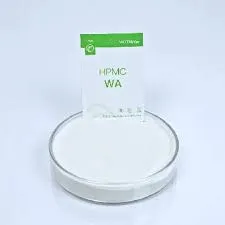
Dec . 04, 2024 16:00 Back to list
Exploring the Applications of Hydroxyethyl Cellulose in Various Industries and Products
The Use of Hydroxyethyl Cellulose Applications and Benefits
Hydroxyethyl cellulose (HEC) is a water-soluble polymer derived from cellulose, the primary structural component of plants. As a non-ionic cellulose ether, HEC is renowned for its unique properties, such as thickening, suspending, and forming gels. These features make HEC an invaluable ingredient across various industries, including pharmaceuticals, cosmetics, food, and construction.
One of the primary applications of hydroxyethyl cellulose is in the pharmaceutical industry. It is often used as a thickening agent, stabilizer, or film-forming agent in drug formulations. HEC can enhance the viscosity of aqueous solutions, making it easier to administer medications while improving the drug's bioavailability. Additionally, HEC is instrumental in controlled-release formulations, where it helps to regulate the release of active ingredients over time. This quality ensures that patients receive a steady dose of medication, thereby increasing therapeutic effectiveness.
The Use of Hydroxyethyl Cellulose Applications and Benefits
The food industry also leverages the benefits of hydroxyethyl cellulose as a food additive. It acts as a thickener, stabilizer, and emulsifier, aiding in texture modification and maintaining product consistency. HEC can be found in sauces, dressings, and dairy products, where it helps improve viscosity and mouthfeel without altering flavor. Additionally, its ability to retain water makes it a valuable ingredient in low-fat and reduced-calorie products, as it can mimic the texture of fats without adding calories.
use of hydroxyethyl cellulose

In the construction sector, hydroxyethyl cellulose is used as a crucial additive in plaster, cement, and tile adhesives. It improves workability, adhesion, and water retention of construction materials, which leads to enhanced durability and performance. HEC allows for better application and manipulation of materials, making it easier for construction professionals to achieve high-quality results. Its water-retention capabilities prevent premature drying, ensuring that the materials properly cure and bond, leading to stronger structures.
Moreover, hydroxyethyl cellulose's eco-friendliness and biodegradability are significant advantages in an era where sustainability matters more than ever. As a natural polymer derived from renewable cellulose sources, HEC aligns with the growing demand for environmentally conscious products. Its versatility and non-toxic nature make it suitable for sustainable formulations across various industries.
Despite its many benefits, it is essential to note that the use of hydroxyethyl cellulose should be carefully regulated to avoid potential adverse effects. While HEC is generally recognized as safe, excessive consumption or exposure can lead to allergic reactions in some individuals. Therefore, formulation scientists and manufacturers must adhere to specific guidelines when incorporating HEC into their products.
In summary, hydroxyethyl cellulose is a versatile and valuable ingredient widely used across multiple industries. Its thickening, stabilizing, and emulsifying properties enhance product performance and consumer experience in pharmaceuticals, cosmetics, food, and construction. As sustainability becomes increasingly important, HEC’s eco-friendly profile positions it as a preferred choice for formulators aiming to create effective and environmentally responsible products. As research continues to explore new applications and benefits of HEC, its role in enhancing product performance across various sectors is likely to grow even more significant in the future.
-
Versatile Hpmc Uses in Different Industries
NewsJun.19,2025
-
Redispersible Powder's Role in Enhancing Durability of Construction Products
NewsJun.19,2025
-
Hydroxyethyl Cellulose Applications Driving Green Industrial Processes
NewsJun.19,2025
-
Exploring Different Redispersible Polymer Powder
NewsJun.19,2025
-
Choosing the Right Mortar Bonding Agent
NewsJun.19,2025
-
Applications and Significance of China Hpmc in Modern Industries
NewsJun.19,2025







